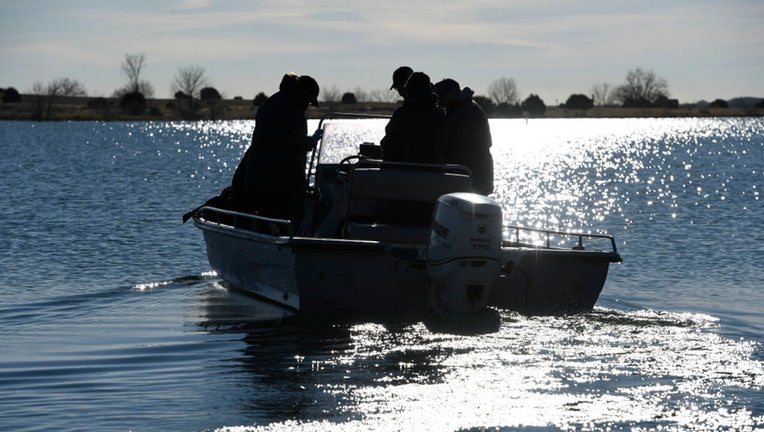Rare disease found in Colorado fish urges warning as ‘Sandy Flesh’ spreads West

FILE - A crew heads back out retrieve more walleye from Lake Pueblo State Park for the annual Colorado Parks and Wildlife Walleye spawn operation March 22, 2018. (Andy Cross/The Denver Post via Getty Images)
Wildlife officials in Colorado are warning anglers of a rare disease spreading into the West after a confirmed case in a single walleye caught at Lake Pueblo State Park.
It's the first time myofibrogranuloma, also known as Sandy Flesh disease, has been found in the state, Colorado Parks and Wildlife said.
Officials said the degenerative muscle disease is not believed to be transmittable to humans. However, it is recommended no one consume a walleye they suspect is infected.
According to CPW, the disease typically occurs in the Midwest, particularly in North and South Dakota, Minnesota, Wisconsin and Nebraska. It has spread to the West, including in Utah, Idaho, Wyoming and now Colorado.
"It’s not a shock that it has reached Colorado since it occurs in so many neighboring states, but it is unfortunate," said Carrie Tucker, CPW aquatic biologist in Pueblo. "We don’t expect it to have a big impact because it typically only shows up in a small number of older walleye."
The disease has existed for decades and typically impacts a few fish in various states, wildlife officials said. It primarily affects older walleye, although there have been a few cases of infected yellow perch.
While fish infected with Sandy Flesh disease look normal on the outside, it can only be found when cleaned.
According to CPW, areas of the filet will look semi-translucent, or yellowish brown, with knotted muscle fibers. The tissue can resemble meat with freezer burn.
"But it’s important that walleye anglers be aware and carefully inspect their catch when they are cleaning them," Tucker said.
Any angler who finds Sandy Flesh in a fish should report it to CPW immediately and provide good, high-resolution photographs so they can be analyzed. If discovered, the entrails should not be thrown back into the lake but disposed of with household waste or buried.
According to wildlife officials, the cause and means of transmission of the disease are unknown.

